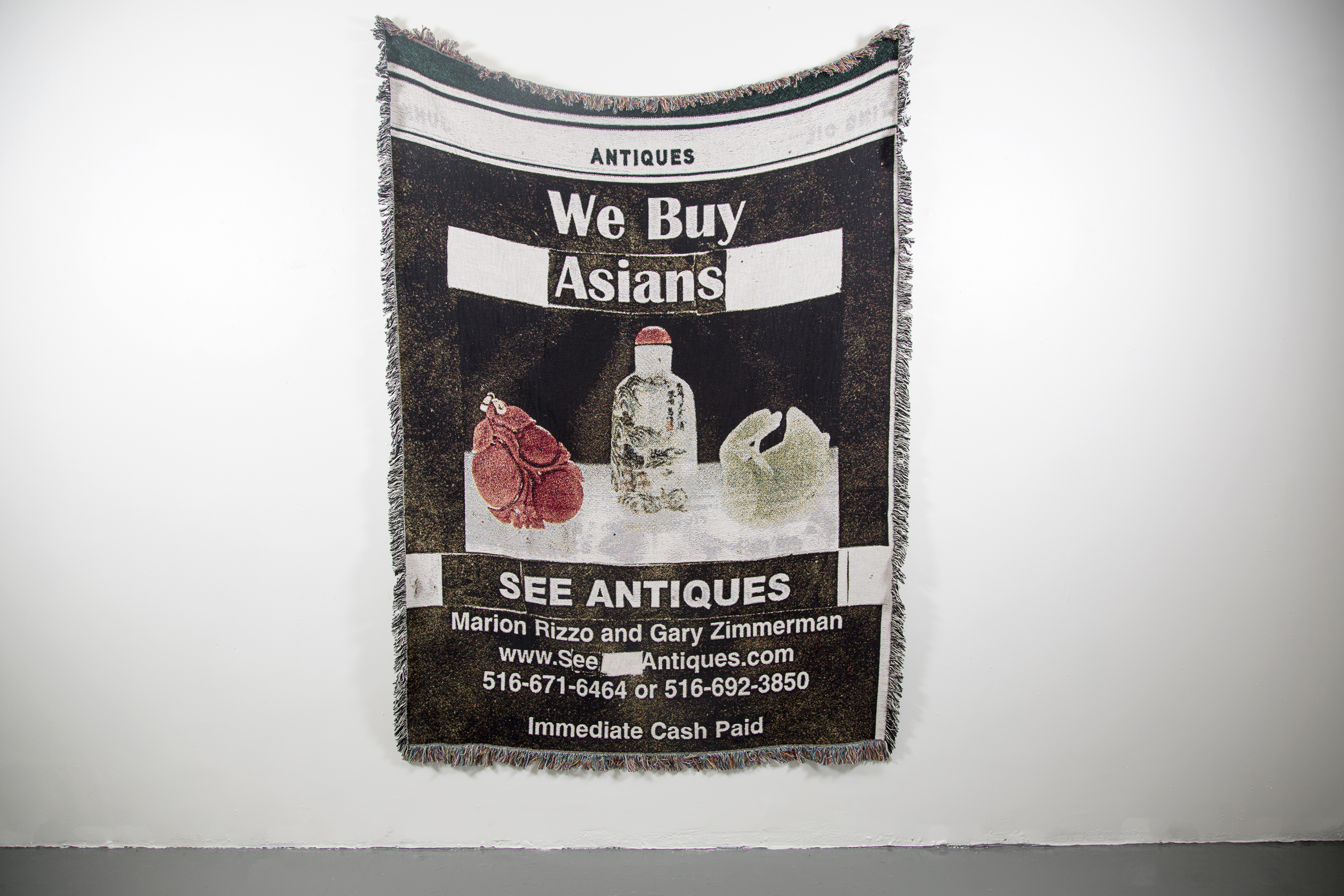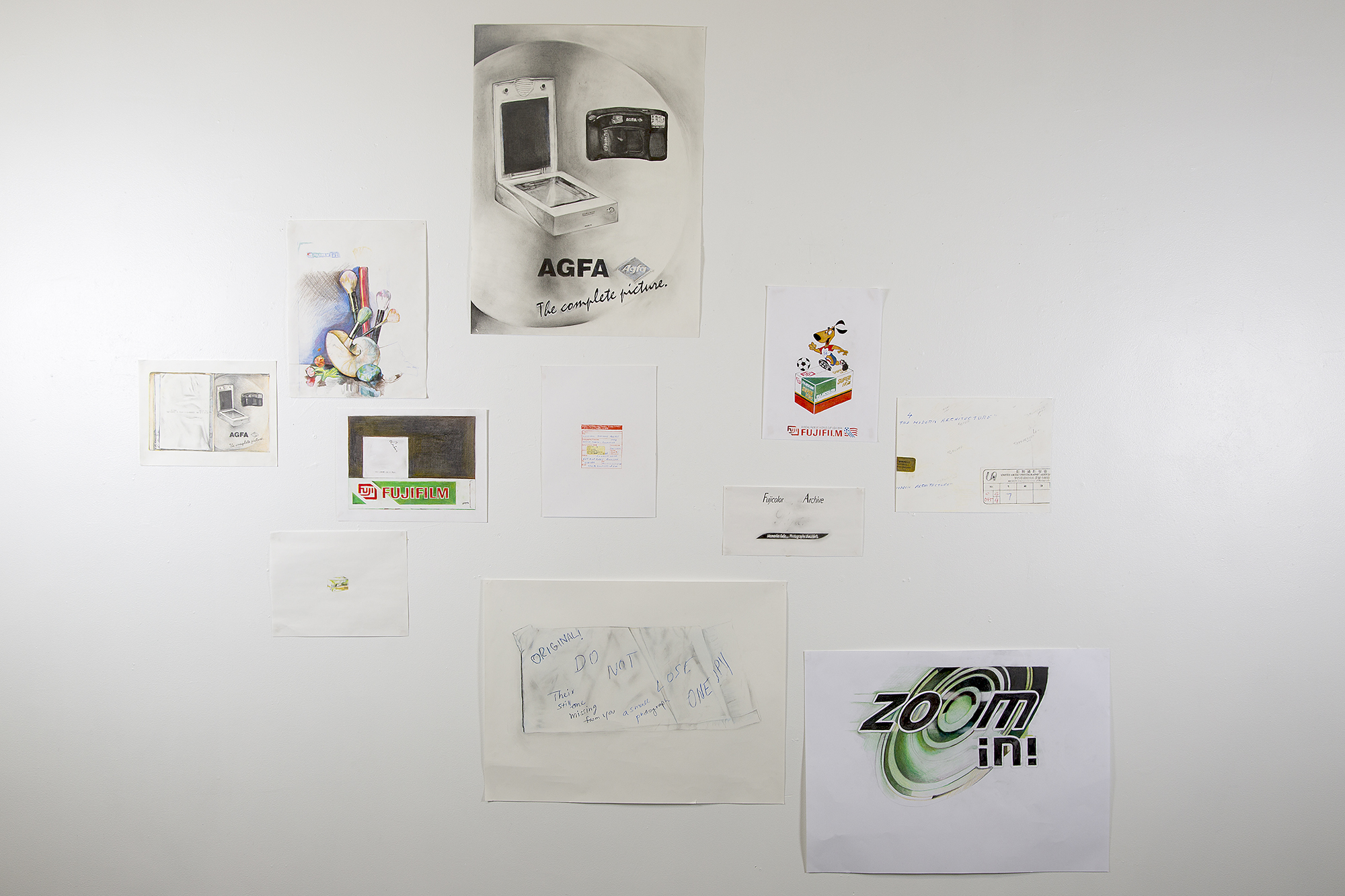umbermajeed.com

"We Buy Asians," 2015 custom tapestry weave 50 in x 70 in
"Body of Water," 2015 single channel video 00:09:01
'Body of Water' is a video explores how the body attempts to move in water, land, and the digital realm. The materiality of the green screen paper (digital fabric) is enacted as the bodies shift; through these movements the surface continues to exist as well as the formation of an uncanny relationship to swimming. The size of the surface allows for close contact between the bodies of intergenerational relation. There are moments of touch between both subjects but the emphasis is to allow the artificial body of water to exist. There is a merging and delay of actual and imagined realities through references to stock footage readily available on Youtube against an recorded ‘immediacy’ of the amateur performers. This simple gesture grapples at the futile attempt towards social mobility and a yearning for fluidity in motion as if in water.

"Memories Fade... Photographs shouldn't," 2016 color pencil drawings on paper- installation Varied Sizes
"Memories Fade... Photographs shouldn't," 2016 single channel animation 00:04:27
“Memories fade … Photographs Shouldn’t”, is a video animation incorporating the artist’s maternal grandfather, Pirzada Abdul Waheed’s analog photographic archive. Pirzada Abdul Waheed was a young member of the Muslim League during the Partition of 1947 and sought out the development of modern day Pakistan. The photographs presented are specific to the late 1970s - early 2000s, where the artist’s grandfather documented the construction and development of the Faisal Mosque in Islamabad, Pakistan (National Mosque of Pakistan). The artist, reconfigured the photos through digital manipulation and playfully activates the aesthetics within the photographs, thus creating a inter-generational dialogue within the work. The photographs reveal Waheed as an flaneur, capturing moments between the laborer’s body on site as well as the nuances of the Islamic architecture.
The artist is interested in blurring the lines between native and foreign using the Faisal Mosque as a convoluted representation of national identity. The National Mosque was funded by the late King Faisal bin Abdul-Aziz and the government of Saudi Arabia as well as designed by a Turkish Architect, Vedat Ali Dalokay. The facts outline the influence of a particular kind of Islamization that still affect Pakistan today. These notions of belonging reveal itself to be constructed, leading one to question the pursuits of such assimilation.
In this age of globalized cultural exchanges and blurred boundaries, frameworks that defined histories and cultures are challenged. My practice is conceptually driven by my physical and cultural displacement; defined through movements from, between, and within my multi-cultural experiences. My art training in both Pakistan and the United States has activated a mapping of my cultural hybridity to question the essence for a site of belonging. The motifs, sites, and references I use are that of the body, spoken and visual language, notions of the institution, and the public. The referential nature of my work questions the insider and outsider status of the artist, subject, and viewer.
Umber Majeed (b. New York, 1989) is a multidisciplinary visual artist. She completed her MFA from Parsons the New School for Design in 2016 and graduated from Beaconhouse National University in Lahore, Pakistan in 2013. Majeed has shown in venues across Pakistan, North America, and Europe. Recent group exhibitions include; ‘The Divided Self’, The Slought Foundation, Philadelphia (2012), ‘Ornate Activate’, Shirin Gallery, New York (2015), and “The Museum: Within and Without”, The State Hermitage Museum, St.Petersburg, Russia (2015), and “welcome to what we took from is the state”, Queens Museum, New York (2016). Her work has been acquired by several private collections, including the Lekha and Anupam Poddar Collection at the Devi Art Foundation in Gurgaon, India.


